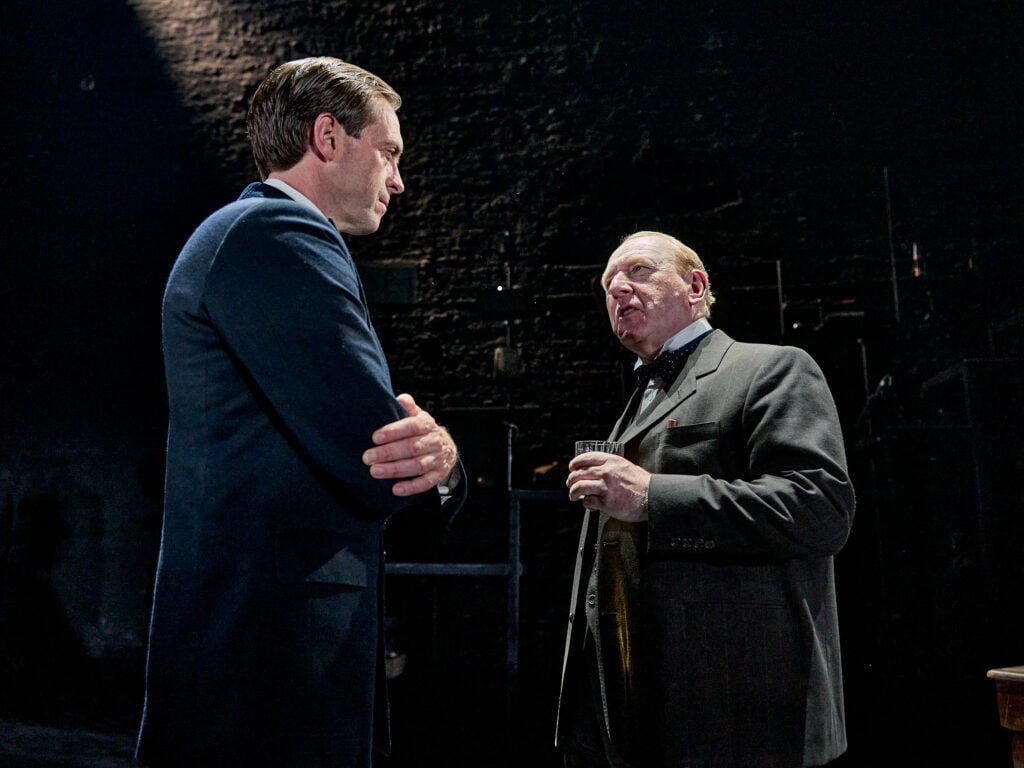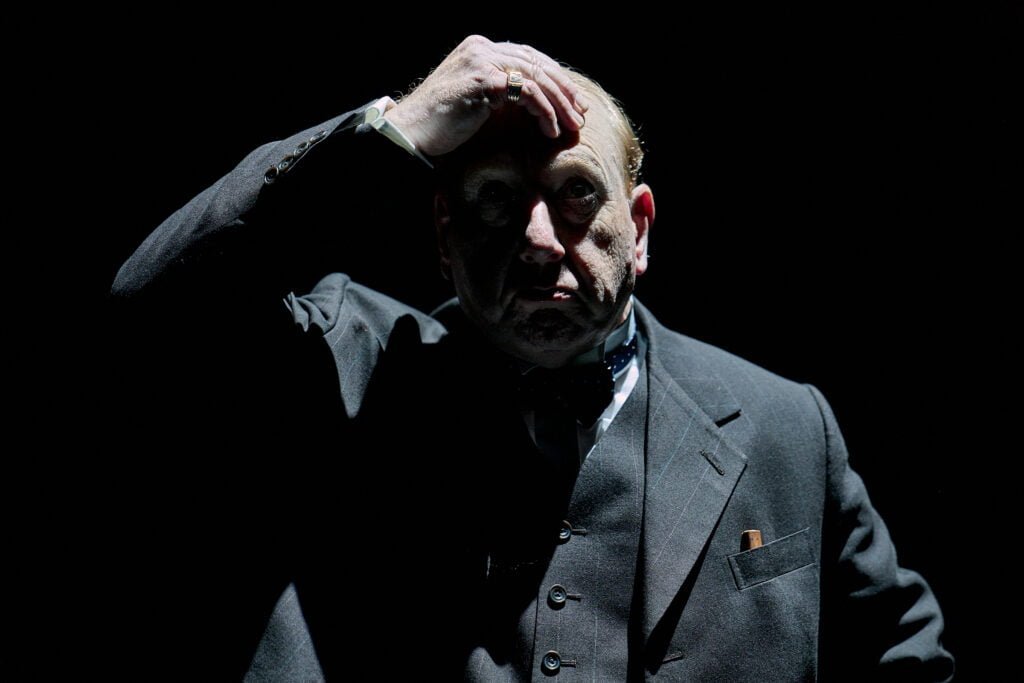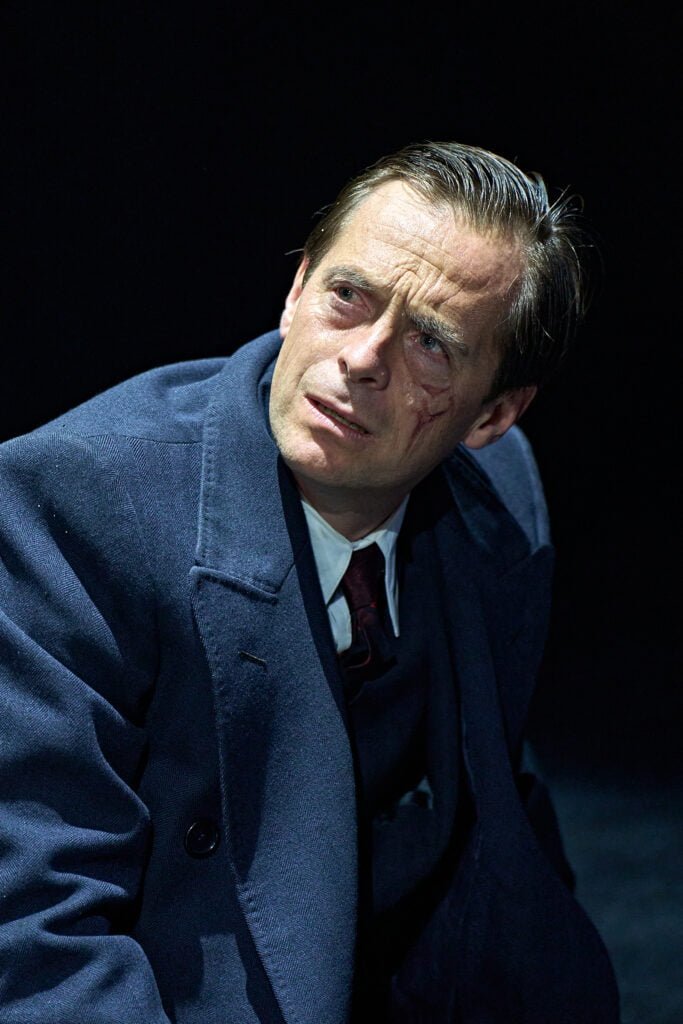The Independence of the BBC
“Inform, Educate, Entertain “
John Reith

While I greatly admire the alliteration of the title of Jack Thorne’s latest play When Winston Went to War with the Wireless, this play is really about John Reith, the 6 feet 6 Scots, Presbyterian, engineer who became the first managing director of the BBC.
Set in 1926, a General Strike was called by the TUC in support of miners whose wage had dropped from £6 to £3 8s over 7 years. The printers were on strike so the BBC was the only source of news. Foreign Secretary Winston Churchill (Adrian Scarborough) and Prime Minister Stanley Baldwin (Haydn Gwynne) visited Reith to put the government’s case and interfered with what the BBC were planning to broadcast.
As the Corporation’s Royal Charter wasn’t in place until the start of 1927, there was a danger that Churchill could close down the BBC. Churchill had already requisitioned the newsprint paper from the TUC’s newspaper meaning each edition could only be four pages instead of eight. This newsprint was used for the Government’s own anti-strike paper The British Gazette. All other papers were affected by the printers’ strike.

The General Strike affected transport, travel and supplies over 12 days. The BBC was the only source of news, independent from both the government and the TUC. The picture of Churchill is not that of the heroic war time leader but someone bullying, determined that the Bolshevik revolution should not encompass Britain. What with Churchill’s anti-emancipation shown in Sylvia, pre-war Churchill is being reassessed.
Stephen Campbell Moore as Reith, ten years younger than the youngest of his six siblings, son of a Presbyterian Minister and educated at Glasgow Academy, prays frequently and is shown as a man obsessed by an early friendship and love for Charlie Bowser (Luke Newberry) a relationship which Reith’s daughter Marista Leishman was convinced was homosexual. His own marriage to Muriel (Mariam Hague) seems to have had difficulties. He has a prominent scar on his left cheek after being wounded in the First World War which at the time he regretted because he was wearing a new tunic.
There is a wonderful opening scene of the makeshift radio sound effects made by the early Foley technicians, the coconut shells of horses’ hooves, the gunshot that is a stick of celery being cracked in two or the popping of a champagne cork. The trowel on a spade for the slice of a sword, the eye gouging of a spoon in a soft orange. The play’s backdrop is a collection of these novel items used for radio sound. Ben and Max Ringham are the sound directors creating this inventive sensory world.

Jack Thorne has carried out detailed research and his text is full of facts but somehow the dramatic momentum tails off in the second act making the play more sterile. Maybe it is difficult to dramatise Reith’s legacy, standing up to political pressure from a powerful politician. The real John Reith was very tall and with bushy eyebrows and of course, that sinister scar, and we don’t really feel this in Stephen Campbell Moore’s performance. Adrian Scarborough has a good stab at the real early Winston Churchill before the heroic speech master of the Second World War.
I really liked the snippets of the early BBC programmes, the classical music, Haydn Gwynne’s other part, not the snakey Prime Minister Stanley Baldwin but the female Beatrice Lillie in her comic song “Don’t Be Cruel to a vegetabuel!”. Katy Rudd directs this piece of broadcasting history and you can be forgiven if today you have a sense of déjà vue.

Production Notes
When Winston Went to War with the Wireless
Written bay Jack Thorne
Directed by Katy Rudd
Cast
Starring:
Haydn Gwynne
Adrian Scarborough
Stephen Campbell Moore
Elliott Rennie
Kevin McMonagle
Kitty Archer
Laura Rogers
Luke Newberry
Mariam Haque
Ravin J Ganatra
Shubham Saraf
Seb Philpott
Creatives
Director: Katy Rudd
Designer: Laura Hopkins
Composer: Gary Yershon
Lighting Designer: Howard Hudson
Sound Designer: Ben and Max Ringham
Movement: Scott Graham
Information
Running Time: Two hours 25 minutes with an interval
Booking to 29th July 2023
Theatre:
Donmar Warehouse
Earlham Street
Covent Garden
London WC2H 9LX
Tube : Covent Garden
Website: donmarwarehouse.com
Reviewed by Lizzie Loveridge
at the Donmar Warehouse
at the matinée on 15th June 2023

